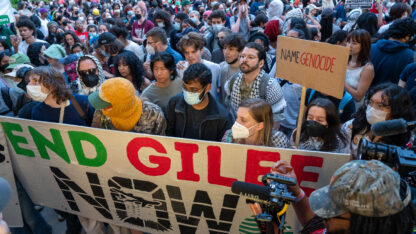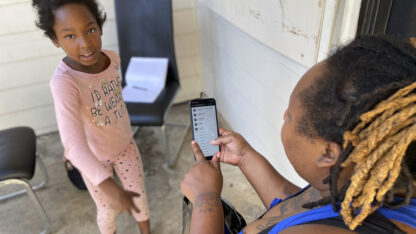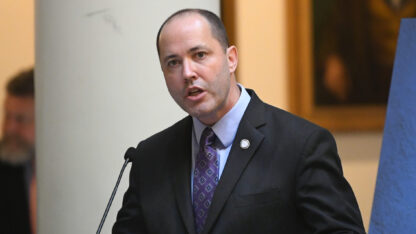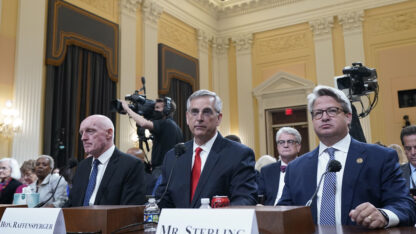As Baseball Marks Negro League Milestone, Ex-Atlanta Brave Wants Sport To Do More To Attract Black Players

Hall of Famer Hank Aaron, whose statue stands outside the old Turner Field, was the last member of the Negro Leagues to play Major League Baseball.
Emil Moffatt / WABE
Before he was a perennial All-Star, before he set the career home run record, Hank Aaron spent time playing shortstop for the Indianapolis Clowns in the Negro Leagues.
“I think we got a dollar a day meal money, and I got $250 a month for salary,” Aaron said.
“The only time we ever stayed in a hotel was on a Saturday, Saturday night, and the rest of the time we would travel all over the place,” Aaron said in a 2016 interview with WABE’s Denis O’Hayer.
By the time Aaron played in the Negro Leagues, they were in decline, and baseball had integrated a few years before — African Americans were now playing alongside white players in the majors.
By the mid-1950s, the Negro Leagues all but vanished. Aaron would be the last of the Negro Leaguers who also played in the big leagues.
This week, the Atlanta Braves and Major League Baseball have been commemorating the 100th anniversary of the beginning of the Negro Leagues, including special features on Fox Sports South prior to Braves games on TV.
Former Braves outfielder Brian Jordan is a part of those broadcasts.
“You know, some of my fondest memories of growing up and talking to my Dad was always about talking about who he thought were the two best players in the Negro Leagues, Satchel Paige and Josh Gibson,” said Jordan.
Jordan says those ballplayers paved the way for him and other African Americans to play the game.
But he worries about the next generation of Black baseball players. After a peak in the mid-1980s, the percentage of African Americans in the big leagues has dropped to the single digits.
Remembering the past is good, Jordan says, but it’s what baseball does next that will determine the role African Americans play in the game for the coming 100 years.
“Major League Baseball has done a terrific job internationally bringing baseball in focus there,” said Jordan. “But they haven’t done enough here in the United States in the inner cities and low-income areas.”








